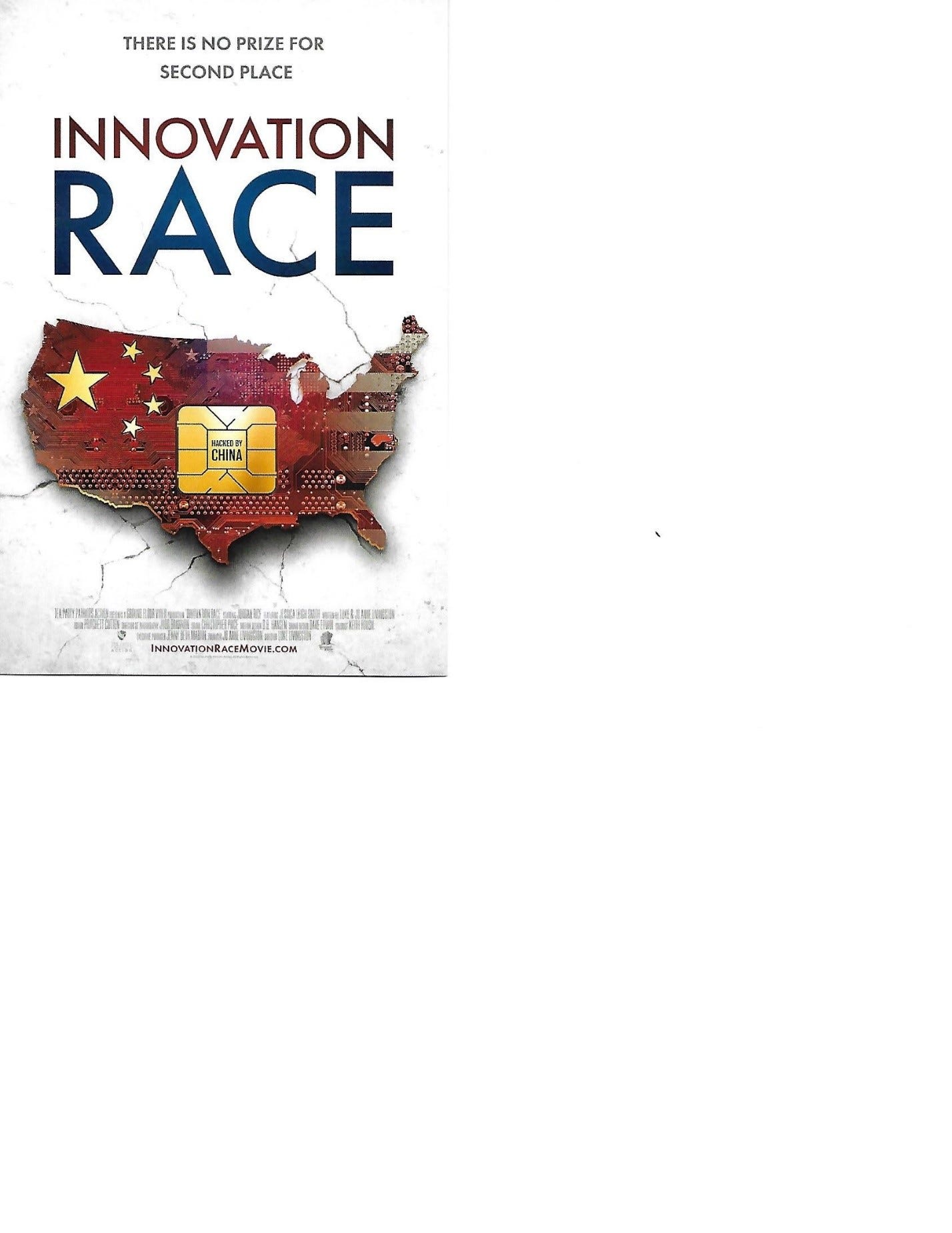Fearing China
Most people are aware that China has been stealing our technology for years because our innovations have made us the global superpower in tech, military might and in economics. The CCP knows they cannot easily win a military war against us (though they are building up to it more effectively than we are), but they do know they can win an economic war. Failing to inform the world of the “lab leak” helped them achieve an economic edge, but they aren’t satisfied with that. Until the yuan or renminbi is the primary reserve currency, the CCP won’t have achieve the dominance they desire.
The Movie
“Innovation Race” was designed to help us understand a threat few people recognize – their ability to use the stringent regulations of the US patent system to gain an edge. Until 2006, we had one of the strongest patent protections in the world, which enabled inventors to take the risk of investing the time and money to create ideas, processes and things on which we all rely. While we currently think all inventions come from Silicon Valley or the like, the patent system is essential to protect the small inventor or company who struggles to get the investment necessary to bring their idea to market.
Beginning in 2006, Congress passed the America Invents Act (AIA) which weakened our patent protections by removing a lot of the property and liability rules. The bill was pressed by big tech who stood to benefit from the weakening. These large companies can basically steal the rights of the original inventors with almost no way to stop them. SCOTUS has even agreed to weaken the protection and cases before the courts have routinely favored the incumbents over the newcomers.
Part of the dodge, referenced in the movie, is to a derogatory term, “patent trolls,” which describes someone who invents something with no intent to manufacture the item. Unfortunately, that term is too often applied to a new patent applicant who fully intends to go to market, but doesn’t have the ready cash to do it as quickly as the incumbents. Incumbents say that these inventors stop innovation we need and by suing the small companies, they can basically buy away the rights without paying what is truly owed to the inventor.
To personalize the situation, a parallel story is told about a teenage inventor who finds her innovation stolen. She has put her heart into a science competition with big stakes, only to be told on judging day that someone else has beat her to the punch. This interwoven story is a heartbreaking parallel to invention theft happening every day.
The Chinese Approach
The CCP carefully studied our original patent protections and saw the benefit to having a large population potentially creating new products. They passed our original, stringent patent laws as a way to create competition with us. Now, inventors are likely to apply for patents in China rather than in the US to achieve better protection.
Are there real patent trolls who impact our innovation? Most likely, but the number is likely to be very small. Simply to get an invention to the point of applying for a patent can be costly. While there are downsides to our pre-2006 laws and the application thereof, on the whole, we had the right idea originally.
As a writer, I understand the concerns because copyrights are also threatened. Increasingly, my hours, months and years of work can be stolen from me, either by sites putting out my work for free or book trolls who republish the book somewhere else and somehow are able to sell it. I’m still working out how that happens. But having e-books makes the steal far easier. Shouldn’t creators be paid for their efforts? Check this movie out to learn more. It should be out by fall.




